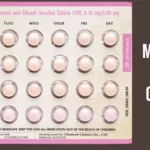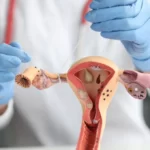
Weight gain after stopping birth control is a topic that many women are curious about. The decision to discontinue the use of hormonal contraceptives can have various effects on the body, and weight gain is one of the concerns that often arises. In this article, we will explore the potential reasons behind weight gain after stopping birth control and provide you with insights into how to manage it effectively. So, if you’re ready to delve into this subject, let’s get started!
What is the Connection Between Stopping Birth Control and Weight Gain?
Weight gain after stopping birth control can be attributed to several factors. It’s important to understand these factors to gain a better insight into how your body might respond to the changes.
The Hormonal Shift and its Impact on Metabolism
When you discontinue the use of hormonal birth control methods, such as the pill or hormonal IUDs, it can lead to a hormonal shift in your body. These contraceptives often contain estrogen and/or progesterone, which can affect your metabolism. As a result, when you stop taking them, your metabolic rate may fluctuate, potentially leading to weight gain.
Water Retention and Bloating
Some women experience water retention and bloating after stopping birth control. Estrogen and progesterone, present in hormonal contraceptives, can influence fluid balance in the body. When you discontinue these contraceptives, your body’s fluid regulation may change, resulting in temporary water retention and bloating. This can contribute to a slight increase in body weight.
Changes in Appetite and Cravings
Hormonal birth control can affect your appetite and cravings. Some women may experience increased hunger or changes in their food preferences while using these contraceptives. When you stop taking them, these effects may diminish, leading to a potential increase in calorie intake. If not adequately managed, this can contribute to weight gain.
Managing Weight Gain After Stopping Birth Control
Although weight gain after stopping birth control is possible, it’s important to remember that it is not inevitable. By implementing certain strategies, you can effectively manage your weight during this transition period.
Adopting a Balanced Diet
Maintaining a balanced diet is crucial for managing weight gain after stopping birth control. Focus on consuming nutrient-dense foods, such as fruits, vegetables, lean proteins, whole grains, and healthy fats. Avoid excessive consumption of processed foods, sugary snacks, and beverages. Pay attention to portion sizes and aim for a calorie intake that aligns with your individual needs.
Engaging in Regular Physical Activity
Regular exercise is essential for managing weight and overall well-being. Engage in activities you enjoy, such as jogging, cycling, swimming, or attending fitness classes. Aim for a combination of cardiovascular exercises and strength training to promote weight management and muscle tone. Strive for at least 150 minutes of moderate-intensity exercise or 75 minutes of vigorous-intensity exercise per week. Incorporating physical activity into your routine can help offset potential weight gain after stopping birth control.
Prioritizing Stress Management
Stress can contribute to weight gain, so it’s important to prioritize stress management techniques. Engage in activities that help you relax and reduce stress, such as meditation, yoga, deep breathing exercises, or spending time in nature. Additionally, ensure you’re getting enough sleep, as lack of sleep can disrupt hormone regulation and increase the likelihood of weight gain.
Are there any Dietary Changes that can Help Manage Weight Gain after Stopping Birth Control?
Yes, there are dietary changes that can help manage weight gain after stopping birth control. Here are some tips:
- Eat a balanced diet: Eating a balanced diet that includes plenty of fruits, vegetables, whole grains, and lean protein can help manage weight gain after stopping birth control.
- Avoid processed foods: Processed foods are often high in calories, sugar, and unhealthy fats, which can contribute to weight gain. Avoiding processed foods and opting for whole, nutrient-dense foods can help manage weight gain.
- Drink plenty of water: Drinking plenty of water can help flush out excess water weight and reduce bloating, which can contribute to weight gain.
- Limit alcohol and caffeine: Alcohol and caffeine can contribute to dehydration and water retention, which can lead to weight gain. Limiting your intake of alcohol and caffeine can help manage weight gain.
- Practice mindful eating: Mindful eating involves paying attention to your body’s hunger and fullness cues and eating slowly and without distractions. This can help prevent overeating and manage weight gain.
- Consider working with a registered dietitian: A registered dietitian can help you develop a personalized nutrition plan to manage weight gain after stopping birth control.
Are there any Supplements that can Help Manage Weight Gain after Stopping Birth Control?
There are no specific supplements that have been proven to help manage weight gain after stopping birth control. However, a healthy diet and regular exercise can help counterbalance weight gain after stopping hormonal birth control. Additionally, some supplements may be beneficial for overall health and wellness, which can indirectly impact weight management. For example, omega-3 fatty acids, vitamin D, and probiotics have been shown to have various health benefits. It’s important to talk to your healthcare provider before starting any new supplements to ensure they are safe and appropriate for you.
How can Probiotics Help with Weight Management after Stopping Birth Control?
Probiotics are live microorganisms that have health benefits when eaten. They can be found in both supplements and fermented foods. Some probiotic strains may help support weight loss and provide other health benefits, including to your heart, immune system, and digestive system. Studies have found that certain strains of the Lactobacillus family can help you lose weight and belly fat. Additionally, probiotics can improve the health of your gut microbiota, which can indirectly impact weight management. The gut microbiota plays a role in nutrient absorption, metabolism, and energy regulation, all of which can impact weight management. However, it’s important to note that not all studies have found that probiotics aid weight loss, and more research is needed to fully understand the relationship between probiotics and weight management
Conclusion
Weight gain after stopping birth control is a possibility, but it’s not a guarantee for every woman. The hormonal changes, fluid retention, and shifts in appetite can contribute to weight fluctuations. However, by adopting a balanced diet, engaging in regular physical activity, and managing stress, you can mitigate the chances of significant weight gain. Remember, everyone’s body is different, so it’s important to listen to your body and consult with a healthcare professional if you have any concerns.
Frequently Asked Questions (FAQs)
Is Weight Gain after Stopping Birth Control Inevitable?
No, weight gain after stopping birth control is not inevitable. While some women may experience slight weight changes, others may not notice any significant difference. By adopting a healthy lifestyle and managing your diet and exercise, you can minimize the chances of weight gain.
How Long does it Take for Weight to Normalize after Stopping Birth Control?
The time it takes for your weight to normalize after stopping birth control can vary. Some women may notice changes within a few weeks, while others may require several months. It’s important to be patient and focus on sustainable habits rather than rapid weight loss.
Can Certain Types of Birth Control lead to more significant Weight Gain?
Some studies suggest that certain types of birth control, such as hormonal injections or implants, may be associated with a higher risk of weight gain compared to other methods. However, the extent of weight gain varies among individuals, and it’s important to consult with your healthcare provider about the potential side effects of different birth control options.
What are some other Potential Side Effects of stopping Birth Control?
In addition to potential weight changes, stopping birth control can cause other side effects such as changes in menstrual patterns, acne flare-ups, mood swings, or breast tenderness. These effects are usually temporary and should subside as your body adjusts to the hormonal changes.
Should I Consult a Healthcare Professional if I experience Weight Gain after stopping Birth Control?
If you’re concerned about weight gain or experiencing other significant changes after stopping birth control, it’s advisable to consult with a healthcare professional. They can evaluate your individual situation, provide guidance, and offer personalized recommendations to help you manage any concerns.
Are there any Birth Control Methods that are less likely to cause Weight Gain?
While individual responses to different birth control methods may vary, non-hormonal options such as copper IUDs or barrier methods like condoms generally do not have a direct impact on weight. However, it’s important to discuss with your healthcare provider to determine the most suitable option for you based on your specific needs and medical history.












